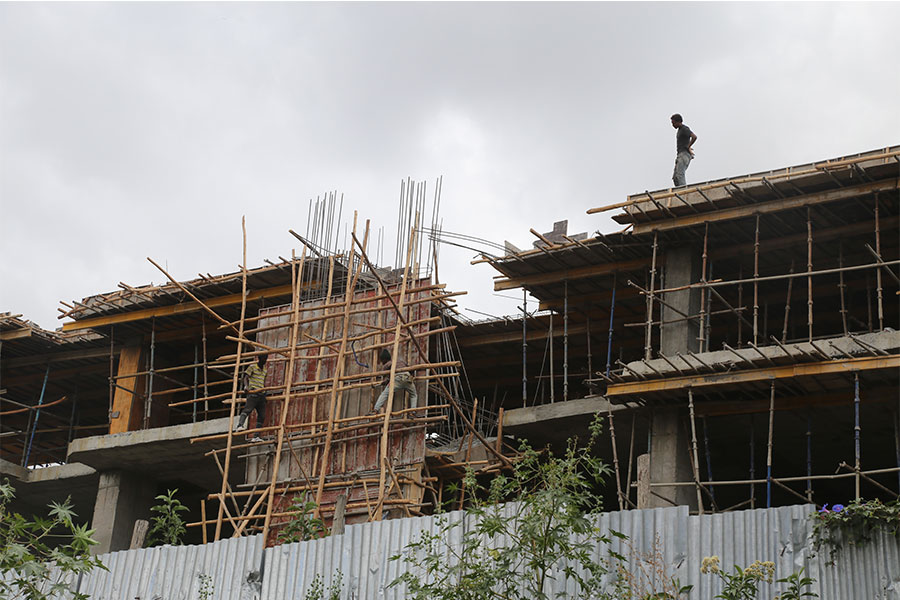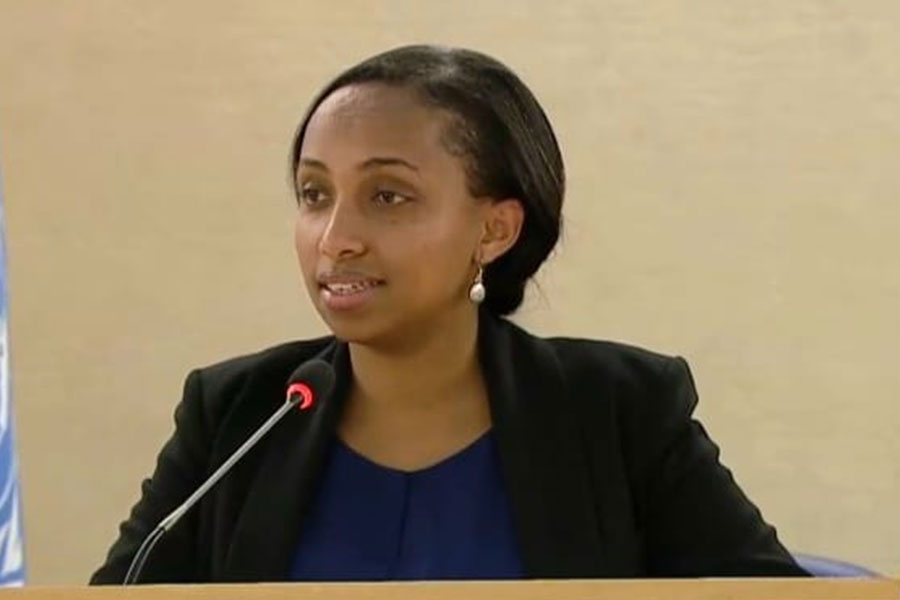
Nov 26 , 2022
By Abraham Tekle
Rule by law and the rule of law are mutually exclusive terms. Using them synonymously is getting blurred in our society. Defining the terms is one thing but labelling the community against their will is another. A society that abides by the rule of law requires a modern society with a modern attitude.
The concept of rule by law sees the governing authority as being above the law and having the power to create and execute law when convenient. It is a method power uses to shape individuals' behaviour when governing. Its end is psychologically or forcefully persuading citizens to agree with policy decisions. Democracy goes down like a lead balloon as it takes force to shove things down peoples' throats.
The rule of law is an intrinsically abstract idea grounded in philosophical and moral conceptions. Everyone is equal before the law, whether at the lowest level of citizenship or those taking levers of a sovereign state. Everyone should be treated fairly and justly, and power is not exercised arbitrarily or with impunity. Democracy flourishes because the governing body built institutional legacies or values and has been able to shape society.
Which one of the philosophical ideologies used in our country is a question that needs an answer.
I see government officials and the public using the terms as one and associating them with stakeholders in the public policy arena. These are individuals or groups engaged in organisational affairs, such as politicians and regulatory agencies. The confusion can be addressed by building robust institutions that essentially strengthen the rule of law.
We first need to focus on strengthening public attitudes, not institutions. This involves the difficult, dangerous and often unglamorous work of mobilising at the grassroots. Empowering citizens to act through informal channels outside established institutions and educating and training initiatives could improve the public's understanding.
Such efforts are vital for states where institutions are fundamentally broken. In established democracies, the failure in the country of supposedly strong institutions to prevent the rule of law from being undermined has shown that there is no substitute for active and organised citizens. Such engagement cannot be legislated, decreed, or copied and pasted from another jurisdiction. The public must build it collectively from the ground up.
It starts with exposing citizens' minds to a different notion of society, a new way of doing things. Such practices might initially feel small and irrelevant. However, people build mutual trust and gain confidence in themselves and the system. Through time, the procedure becomes national because one cannot unlock "peoples' power" to bring about change.
The people's power can strengthen the rule of law by balancing and even neutralising the top-down pressure placed on courts and police by the authorities. This can ensure limited institutional power following the rule of law. The other one is to allow a people-power movement to create alternative spaces that anticipate a society where the rule of law is respected. Any civil disobedience must have a strategic purpose and be highly disciplined so that participants understand that it does not insinuate a rejection of the rule of law but rather a means to establish it.
Unlike rule by law, the rule of law connotes its essence based on fundamental principles. The law controls the unlimited power exercised by the supreme law-making authority. The law by which the people are ruled is based on those particular principles and rules. Building the concept from the grassroots is needed in a country like ours, where institutions are fundamentally broken or not working to the required level.
PUBLISHED ON
Nov 26,2022 [ VOL
23 , NO
1178]


Fortune News | Apr 26,2019

Radar | Aug 22,2020

Sunday with Eden | Dec 21,2019

Fortune News | Feb 06,2021

Viewpoints | Nov 23,2024

Verbatim | Mar 16,2019

Fortune News | Apr 28,2025

Commentaries | Apr 10,2021

Commentaries | Apr 22,2022

Sunday with Eden | Apr 06,2024

My Opinion | 131656 Views | Aug 14,2021

My Opinion | 128020 Views | Aug 21,2021

My Opinion | 125983 Views | Sep 10,2021

My Opinion | 123607 Views | Aug 07,2021

Dec 22 , 2024 . By TIZITA SHEWAFERAW
Charged with transforming colossal state-owned enterprises into modern and competitiv...

Aug 18 , 2024 . By AKSAH ITALO
Although predictable Yonas Zerihun's job in the ride-hailing service is not immune to...

Jul 28 , 2024 . By TIZITA SHEWAFERAW
Unhabitual, perhaps too many, Samuel Gebreyohannes, 38, used to occasionally enjoy a couple of beers at breakfast. However, he recently swit...

Jul 13 , 2024 . By AKSAH ITALO
Investors who rely on tractors, trucks, and field vehicles for commuting, transporting commodities, and f...

Jun 28 , 2025
Meseret Damtie, the assertive auditor general, has never been shy about naming names...

Jun 21 , 2025
A well-worn adage says, “Budget is not destiny, but it is direction.” Examining t...

Jun 14 , 2025
Yet again, the Horn of Africa is bracing for trouble. A region already frayed by wars...

Jun 7 , 2025
Few promises shine brighter in Addis Abeba than the pledge of a roof for every family...

Jun 29 , 2025
Addis Abeba's first rains have coincided with a sweeping rise in private school tuition, prompting the city's education...

Jun 29 , 2025 . By BEZAWIT HULUAGER
Central Bank Governor Mamo Mihretu claimed a bold reconfiguration of monetary policy...

Jun 29 , 2025 . By BEZAWIT HULUAGER
The federal government is betting on a sweeping overhaul of the driver licensing regi...

Jun 29 , 2025 . By NAHOM AYELE
Gadaa Bank has listed 1.2 million shares on the Ethiopian Securities Exchange (ESX),...